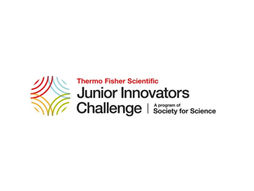Everything You Need to Know about Fermilab's TARGET Internship Program
- Stephen Turban

- Jul 30, 2024
- 4 min read
Updated: Oct 5, 2025
While high school classrooms set a strong theoretical foundation, immersive internships, and pre-college programs can add quite a lot to your knowledge and skill in a field.
These programs allow you to apply theory to real-world challenges and get a good glimpse at future career paths. With the intensive curriculums, hands-on projects, and valuable connections you make, STEM programs can significantly enhance your college applications. One such program is Fermilab’s TARGET internship.
Note that the following information is based on the most recent program, with dates subject to change but generally similar from year to year.
Read on to discover all the important details about the program and our review on whether it is worth it for you.
How is Fermilab’s TARGET internship program structured?
Fermilab is a highly reputed particle physics and accelerator research laboratory run by the United States Department of Energy. The lab’s TARGET internship is a six-week opportunity for high schoolers interested in physics, mathematics, computer science, and engineering. The internship encourages students to pursue STEM careers, particularly women and students from underrepresented communities. The curriculum covers a range of topics such as subatomic particles, quantum science, dark matter, AI, and more.
As a TARGET intern, you’ll work on cutting-edge research with the scientists and engineers at Fermilab. The internship takes place at the lab in Batavia, Illinois, allowing you to work with state-of-the-art facilities.
Your days will be divided into four hours of research work with an assigned project supervisor and four hours of STEM and leadership workshops. At the end of the program, you will be expected to deliver an oral presentation. You can go through the program’s FAQs here.
Here are some important dates you need to keep in mind:
Applications open: November 13
Applications close: February 5
Program begins: June 17
Program ends: July 26
Who can apply?
To apply to the TARGET internship, you must meet the following criteria:
Be a high school sophomore or junior
Be enrolled in a high school in Illinois
Have a minimum 3.0 GPA
Be eligible to work in the USA
Is there a stipend?
Yes, Fermilab’s TARGET program provides a stipend and does not require to pay anything. As an intern, you will receive a salary of $17.20 per hour.
Is it prestigious?
Yes, the TARGET internship is a highly prestigious program due to its association with Fermilab, a globally recognized lab known for its groundbreaking research. Additionally, the program only accepts 10-25 interns each year and requires a high minimum GPA, enhancing its competitive nature and prestige.
Pros and cons
Pros
1. Prestige: Being part of a prestigious program like TARGET can add significant value to your academic profile, demonstrating your dedication to the field and enhancing your college applications.
2. Small cohorts: With only 10-25 participants, you will likely receive more personalized attention and tailored guidance from your instructors, which may not happen at larger internships.
3. Hands-on experience: As an intern, you will engage in practical, hands-on projects that provide real-world experience in scientific research.
4. State-of-the-art facilities: You will have the opportunity to work with advanced technology, including cutting-edge research tools and methodologies.
5. Mentorship and networking: You will directly interact with Fermilab scientists and engineers who can provide meaningful career advice and insights into STEM fields. Networking with peers and mentors can also create valuable connections for the future.
Cons
1.No housing provided: The program does not offer housing, meaning participants must arrange their travel to and from the lab. This can be a logistical and financial burden for some students.
2. High competition: Due to the program's prestigious nature and limited cohort size, admission is highly competitive. This can make it difficult for students to secure a spot, especially given the significant time investment required for the application.
Should you do it? – Our Review
Participating in the TARGET Internship Program at Fermilab offers unique and valuable opportunities for students interested in STEM fields, particularly in high-energy particle physics and scientific research. The program's affiliation with a renowned laboratory like Fermilab provides an immersive experience and significant mentorship that could improve your chances during college admissions. Despite the logistical challenges, such as the lack of housing and the competitive nature of the application process, the benefits of the TARGET internship are considerable.
For those passionate about a career in STEM, the TARGET internship program is an excellent opportunity to expand your knowledge, skills, and professional network. Ultimately, you must weigh your resources and career goals to make the right call on whether this program is for you.
One other option - the Lumiere Research Scholar Program
If you’re interested in doing a research project in various STEM subject areas, you could also consider applying to one of the Lumiere Research Scholar Programs, selective online high school programs for students I founded with researchers at Harvard and Oxford. Last year, we had over 4000 students apply for 500 spots in the program! You can find the application form here.
Stephen is one of the founders of Lumiere and a Harvard College graduate. He founded Lumiere as a PhD student at Harvard Business School. Lumiere is a selective research program where students work 1-1 with a research mentor to develop an independent research paper.


















